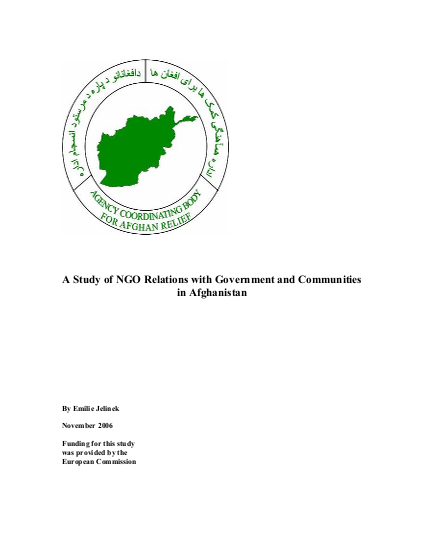
This paper looks at the relationship between provincial and central government actors, communities and NGOs2 in order to articulate the existing tensions between them. How do NGOs engage with provincial and local government structures, which in Afghanistan often exist in the most nascent of forms and where building government capacity is the overriding challenge facing the international community? Do NGOs challenge the government to be more service oriented? What effect is NGO assistance having on communities’ perceptions of government and the relations between the central and provincial government actors? What causes variety and what are the principle determinants of attitude?
Research undertaken in three provinces (Herat, Balkh and Kabul) will examine these dynamics and conclude that relations and perceptions are determined by a combination of factors relating to both the make-up of local government and of the NGOs themselves. A number of studies have been undertaken relating to NGOs and the dilemmas they face in this country. This paper builds on these and aims to challenge both NGOs and the Afghan Government to look at what their relationship could be – what they are trying to achieve in engaging with each other, and how can they best go about it in different ways. It is imperative that the Government and the NGO sector continue to strive to find an effective working relationship in order to improve the lives of the Afghan people.